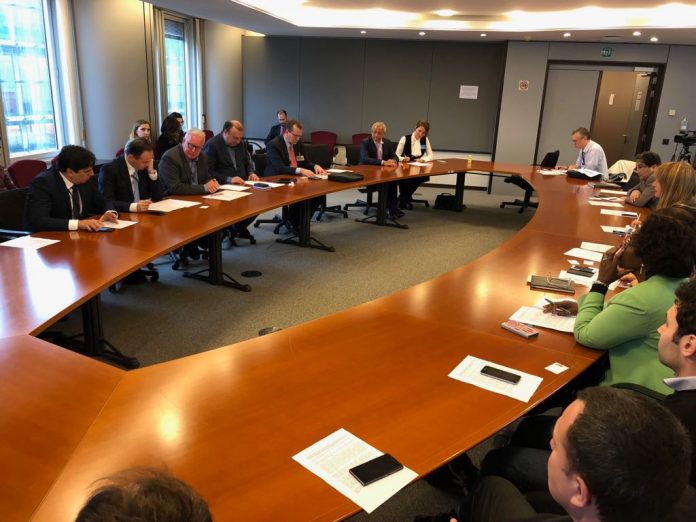Controversy is swirling around how the Ukraine is spending its share of European Union subsidies for the agricultural sector, putting pressure on Brussels to tighten controls.
A roundtable discussion in the European Parliament on March 7 examined the issue. Initiated by MEPs Fulvio Martusciello and Alberto Cirio, their main objective was to shed light on the opacity of government subsidies distribution in Ukraine’s agricultural sector.
They pointed to unfair and non-transparent practices in the procedures, which they blamed on inherent corruption.
As stressed by Cirio, agriculture in Ukraine has always benefited from state aid, which has resulted in the dynamic development of the agricultural sector. However, recent changes in government subsidies have raised serious reservations as regards their fairness.
Ukraine’s parliament last year, for instance, passed a €130m budget for government subsidies to cover the country’s entire agricultural sector. The first point of criticism is that this amount is not nearly enough to assist one of the most important industries of the Ukraine’s economy.
A second point of criticism is that a large chunk (35 percent) of the total subsidies was allocated to just one company, PJSC Myronivsky Hliboproduct. Not only is this the country’s largest industrial company – a monopoly in Ukraine, but its CEO and chief beneficiary is an oligarch – billionaire Yuri Kosyuk. He is one of the richest men in Ukraine, according to Forbes Ukraine. And Myronivsky Hliboproduct is the most profitable company in the country’s agribusiness.
At the same time, there are tens of thousands of small and medium-sized enterprises that are badly in need of the government support. Among them there are enterprises of the grain sector that were not even included in the list of enterprises eligible to receive subsidies.
The third criticism is that tens of thousands of small and medium-sized agricultural companies in Ukraine were left competing for the remaining 65 percent of subsidies. Among them are companies in dire need of state support. There are also other enterprises active in the grain sector that is ineligible for subsidies.
As such, representatives of the European Parliament are concerned about the situation. They argue that under conditions of extremely restrained budget for government subsidies, state support should be provided to small businesses and households that produce more than 50% of all agricultural products in Ukraine in high-risk environments and that need the financial assistance the most.
“Today, in particular, we are concerned about the distribution of government subsidies in Ukraine for the development of the agricultural sector, being one of the most important industries of Ukrainian economy, the leading export industry and having the significant development potential,” said Cirio.
His statement is timely. On February 28, the European Commission prepared a new package of macro-financial assistance for Ukraine to the tune of €1bn, in two tranches. If the European Parliament and the Council of Europe approve the Commission’s proposal within the next couple of months, Ukraine will be able to receive the first tranche as early as July.
The implementation of anti-corruption reforms and relevant legislative initiatives will no doubt be one of the biggest conditions for releasing the funds.
“The new EU requirements will also be related to the fight against corruption in Ukraine,” said Martusciello.
“The financial assistance allocated to Ukraine by the European Union – these are the budgetary funds, which are formed, among other sources, from contributions of the EU taxpayers, and we watch closely how Ukraine fulfils its obligations and the state policy in the country in general,” he added.
In turn, Cirio warned that the signs of corruption are in full view. “We call on the state authorities of Ukraine: the President, the Prime Minister, the profile committees of the Parliament to focus on the schemes of the government subsidies formation in the agricultural sector as well as on the principles of their distribution in 2018 and in future,” he said.
“Under conditions of the limited budget resources for support of Ukrainian farmers… must be aimed at protecting the interests of those sector participants who really need them.”

